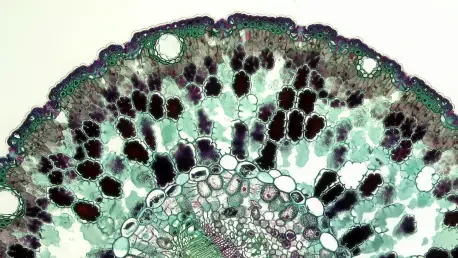
The management of biohazardous waste in restrooms is an often overlooked, yet critical component of maintaining a safe and healthy environment, particularly in public facilities and healthcare settings. Every day, cleaning professionals face the significant risk of exposure to various bodily

In recent years, the intersection of biotechnology and plant biology has led to transformative developments in drug production, highlighting a pivotal turning point in the sustainable manufacturing of vital medicines. Among these advancements is the use of tobacco plants to synthesize baccatin III,

As the biopharmaceutical sector traverses the complex terrain of 2025, it encounters a multitude of challenges shaped by financial constraints, regulatory shifts, and evolving geopolitical dynamics. The industry is marked by notable changes detailed in Ernst & Young LLP's (EY) annual Biotech Beyond

In a world where humans are still grappling with the limitations of healing after severe injury, the axolotl offers a tantalizing glimpse into the realm of science fiction becoming science fact. Known for their extraordinary capacity to regenerate whole limbs with precise anatomical detail,

The world of regenerative medicine has been animated by a remarkable breakthrough in tissue engineering, involving the creation of liver organoids capable of developing their own vascular systems. Emerging from a collaborative effort between scientists at Cincinnati Children's Hospital Medical

In the evolving landscape of cattle agricultural enterprises, ensuring livestock health through tailored biosecurity strategies is a vital component of successful operations. The diversity of cattle operations leads to varying levels of risk and distinct control points, highlighting the importance